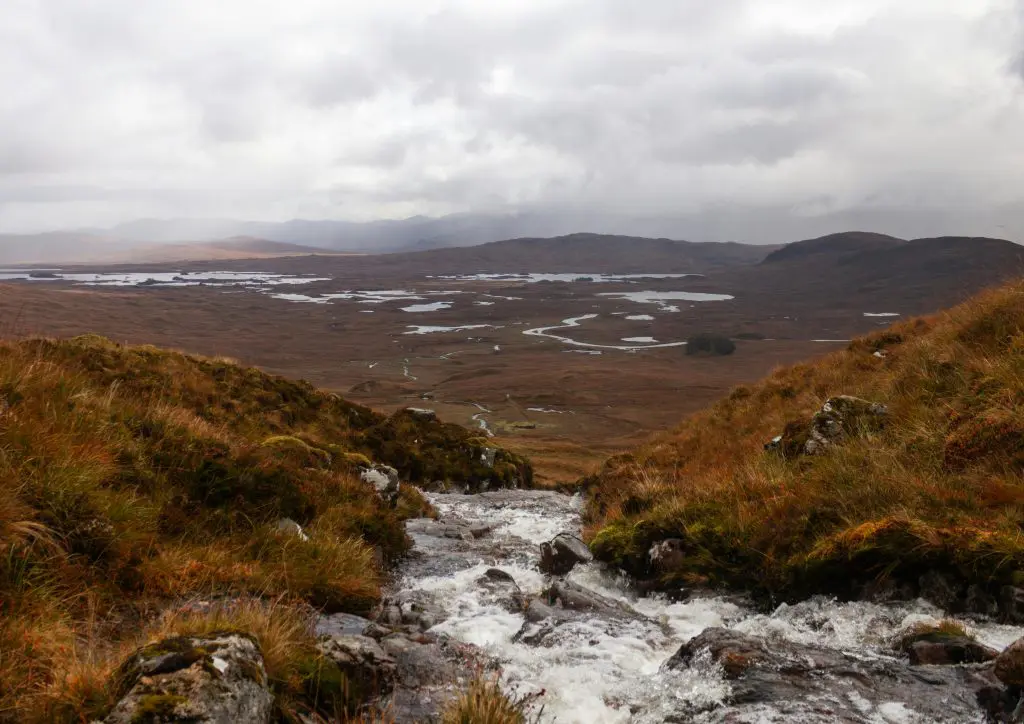
Tech Giants to Fund 450ha of Peatland Restoration in Ireland Three of the world’s largest technology companies, Meta, Microsoft, and Google, are committing €3 million to support the restoration of 450 hectares of peatland in Ireland, according to Peatland Finance Ireland (PFI). The funding will go toward projects that improve water quality and retention, biodiversity, […]
Three of the world’s largest technology companies, Meta, Microsoft, and Google, are committing €3 million to support the restoration of 450 hectares of peatland in Ireland, according to Peatland Finance Ireland (PFI).
The funding will go toward projects that improve water quality and retention, biodiversity, community resilience, and avoided greenhouse gas emissions. The initiative is facilitated by PFI and is supported internationally by the Bonneville Environmental Fund (BEF) in Oregon and Aqua Segura, an organisation that works on water access and sustainability.
Peatlands are among Ireland’s most critical ecosystems, storing carbon, supporting unique biodiversity, and regulating water. Restoring them is considered one of the most cost-effective ways to reduce emissions and enhance environmental resilience.
“Peatlands are one of Ireland’s most important ecosystems for biodiversity, climate, and water, and their restoration is one of the most cost-effective ways to reduce greenhouse gas emissions; protect our unique species of plants and animals; and strengthen climate resilience.” said Dr. Shane McGuinness of PFI. “This investment demonstrates the growing international recognition of Ireland’s nature restoration potential.”
While forests often take centre stage in climate discussions, peatlands store more carbon per square meter than any other ecosystem on Earth. When intact, they act as carbon sinks. However, once drained or damaged, they become significant sources of CO₂. Restoring them is therefore a dual-action strategy: it prevents future emissions while locking away existing carbon.
Restoring peatland is a precise science. It involves:
Rewetting drained areas by blocking old drainage channels to raise the water table
Removing invasive species that disrupt native biodiversity
Reintroducing sphagnum mosses, a keystone species in peat formation
Monitoring greenhouse gas fluxes, using specialized equipment to measure CO₂ and methane emissions over time
Such interventions are tailored to each site, ensuring long-term ecological stability.
The funding will support at least one major peatland site, with ecological assessments and planning currently underway. The first site under consideration is located in the Wicklow Mountains Special Area of Conservation (SAC).
The project has been informed by technical assessments and stakeholder engagement, with design support provided by Waterplan, a company that specialises in securing water resilience.
“This agreement is a breakthrough moment,” said Paul Chatterton, director of the Landscape Finance Lab. “In showing how international climate and nature funding can support Irish communities to revive their landscapes, while respectfully incentivising the incredible work they do on a daily basis.”
All projects under this initiative will be validated against the Peatland Standard for Ireland, developed by PFI and its partners over the last two years. The standard ensures transparency, environmental integrity, and alignment with Ireland’s climate policy goals.
Ireland has one of the highest proportions of peatland in Europe, yet much of it has been degraded by decades of turf-cutting, agriculture, and forestry. This project represents a reversal of historical trends, moving from exploitation to restoration. It’s also aligned with EU biodiversity and climate directives, which call for large-scale habitat recovery by 2030.
Institutions supporting the standard include the:
European Investment Bank (EIB)
National Parks and Wildlife Service (NPWS)
Department of Agriculture, Food and the Marine (DAFM)
Department of Climate, Energy and the Environment (DCEE)
Landscape Finance Lab (established by WWF)
According to PFI, the funding reflects a shared ambition by Meta, Google, and Microsoft to support nature-based solutions that produce measurable outcomes and align with governmental priorities.
The initiative also illustrates how private sector investments can complement public environmental objectives, particularly in areas like land restoration and ecosystem protection.
Final project boundaries are expected to be confirmed later in 2025, as restoration design and assessments continue.
This peatland restoration initiative marks a notable collaboration between global tech leaders and Irish environmental partners. As implementation progresses, it will serve as a benchmark for how corporate climate action and local ecological knowledge can come together to deliver tangible, science-based environmental benefits.
While €3 million is significant, scaling peatland restoration to national and EU targets will require:
Policy incentives for landowners and farmers
Streamlined permitting and land access agreements
Consistent, long-term funding mechanisms
Public awareness campaigns to shift perceptions around bogs from “wastelands” to “climate assets”
This pilot could serve as a model — but only if it’s followed by broader systemic support.
At All-Ireland Sustainability, we’re committed to building a greener, fairer island, together. Stay informed on the latest environmental initiatives, community action, and policy developments shaping sustainability across Ireland, North and South.
👉 Sign up for our newsletter today and be the first to hear about upcoming events, expert insights, and ways to get involved.
Whether you’re a seasoned advocate or just starting your journey, new members are always welcome.
Subscribe now and be part of the All-Ireland Sustainability network.